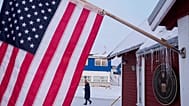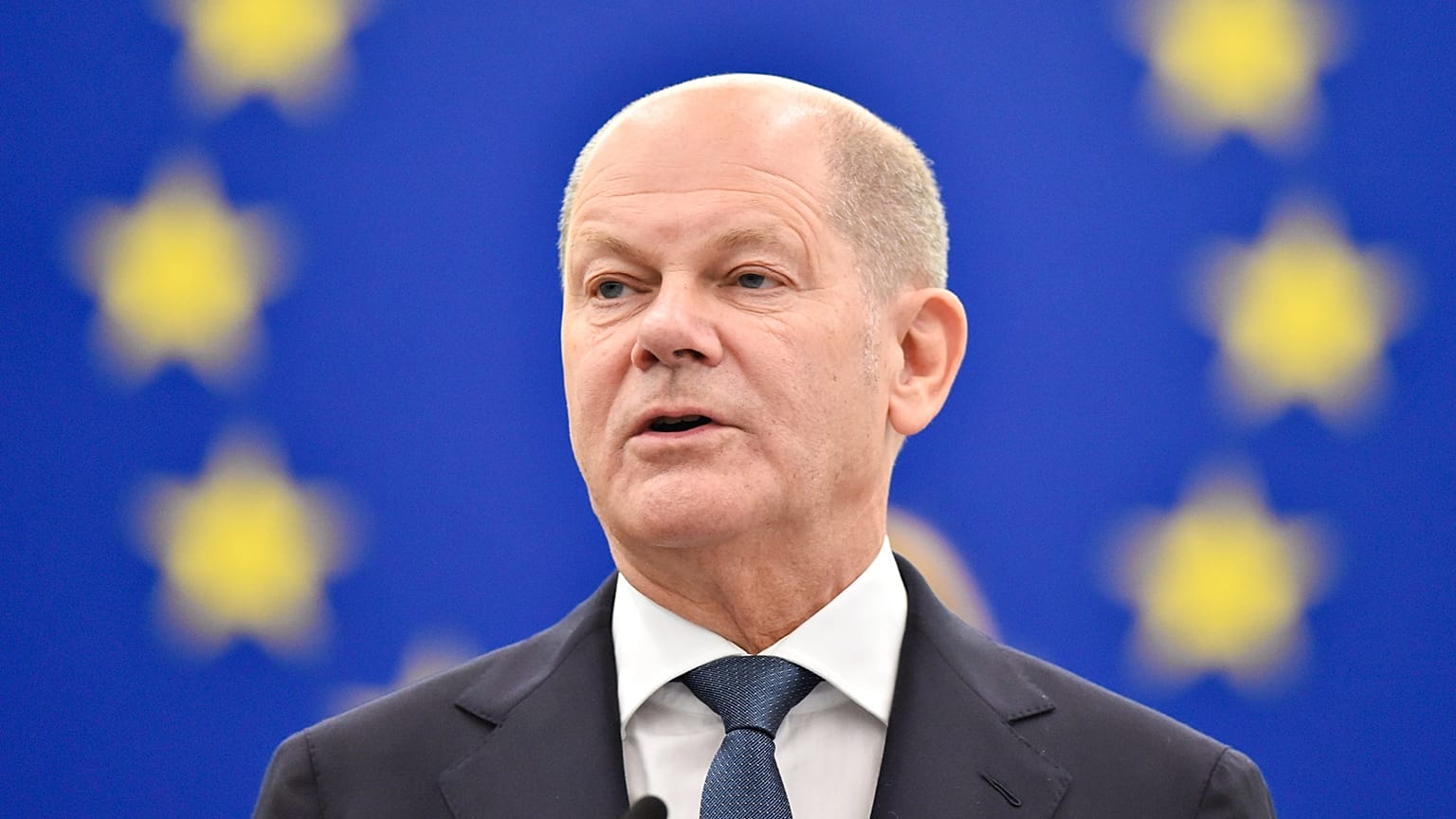Speaking in Strasbourg, the German Chancellor made the case for a geopolitical, reformed and enlarged European Union.
A prosperous, democratic Ukraine fully anchored in the European project represents the "clearest possible rejection" to the "imperial, revisionist and illegal" policies pursued by President Vladimir Putin of Russia, said German Chancellor Olaf Scholz in a speech marking Europe Day.
"Ukrainians are paying with their lives for the delusion of their powerful neighbour," Scholz said on Tuesday morning speaking before the European Parliament Strasbourg.
"None of us wants to go back to the time when the law of the jungle reigned in Europe, when smaller countries had to bow to larger ones, when freedom was a privilege of a few rather than a fundamental right of all."
In his wide-ranging speech, Scholz mounted a resolute defence of the European Union as the most effective antidote against what he called "fantasies of great national power" and "imperialistic megalomania" that have tinged the continent's history with bloodbath and destruction.
It is thanks to the EU, the Chancellor said, that war between member states has become "unimaginable."
Scholz's words served as a rebuke to the events simultaneously unfolding in Moscow, where Putin, watching over a military parade of Victory Day, once again denounced Western allies in line with his personal interpretation of the large-scale invasion of Ukraine himself launched.
"A real war has been unleashed against our Motherland," Putin told the crowd gathered on the city's Red Square.
But Scholz was quick to hit back.
"Let us not be intimidated by such a show of force! Let us remain steadfast in our support of Ukraine – as long as it is necessary!" he said in Strasbourg, speaking in German.
"This is why the message of this 9 May is not what's coming from Moscow today, but our message: the past will not triumph over the future. And the future – our future – is the European Union."
The Chancellor underlined the accession promise the bloc has made to Ukraine, Moldova, Georgia and the Western Balkans was not a matter of "altruism" but rather a question of "credibility and good economic sense" that must live up to the high expectations it has set. Otherwise, he noted, the bloc will eventually lose its "influence and charisma," leaving the enlargement process devoid of meaning.
"We opted for a larger Europe," he said. "This is about securing a lasting peace in Europe after the watershed moment created by Russia's war of aggression."
Scholz, however, pointedly warned that bringing the bloc from the almost 450 million citizens it has today to the over 500 million it will have after enlarging eastward can only be made possible after an internal reform of how the EU works.
"An enlarged EU must be a reformed EU. Obviously, enlargement should not be our only reason for reform, but it should be our arrival point," Scholz said.
The world of tomorrow
Reforms were a theme that featured prominently throughout the Chancellor's speech.
Echoing some of the proposals he expressed last year in Prague, Scholz called for changes in several key areas of EU policy that, in his view, will make the bloc better prepared for the numerous challenges stemming from the "multipolar world" of the 21st century.
"We need a geopolitical EU, an enlarged and reformed EU, and, last but not least, an EU that is open to the future," he said.
On trade, Scholz pushed to inject fresh momentum into negotiations and conclude new free trade deals with Mercosur, Mexico, India, Indonesia and Kenya, among others, an effort that has hit an impasse due to diverging political views and economic interests among member states.
On foreign policy and taxation, the Chancellor demanded a gradual shift from unanimity, a requirement that can be exploited by one single capital to block collective action and extract concessions, towards qualified majority. Ironically though, changing the voting rules will require unanimous approval, which is all but guaranteed to be derailed by those who want to preserve their veto power.
"To the sceptics, I want to say: it's not unanimity, it's not the 100% approval of all decisions that creates the greatest possible democratic legitimacy," Scholz said.
"On the contrary! It is precisely the effort to achieve majorities and alliances that distinguishes us as democrats. The search for compromises that also do justice to the interests of the minority – that reflects our understanding of liberal democracy!"
Speaking about migration, one of the most intractable and polarising issues in the EU's agenda, Scholz suggested the bloc should recognise its urgent need for additional workers and engage with other countries in a way that "all sides benefit."
"We need a solution that lives up to the claim of European solidarity. But we cannot wait for this solidarity to appear before us like the Holy Spirit," the Chancellor said.
On China, a country with which Germany has deep and lucrative economic ties, Scholz admitted Beijing has become more of a rival and competitor rather than a partner but refused a clean break in relations.
"I agree with Ursula von der Leyen when she says: no de-coupling but smart de-risking is the motto!" Scholz said, referring to a recent speech by the European Commission president.
Drawing from the lessons of the successive crises the bloc has faced in the last few years, Scholz encouraged the EU to remain united, open and cooperative, without giving in to the nostalgia for past glories nor succumbing to prophecies of Europe's irreversible decline.
"We need to ensure Europe has an appropriate place in the world of tomorrow," the Chancellor said.
"A place that is not greater nor lesser than that of other countries and regions, but on an equal footing with others, side by side."















